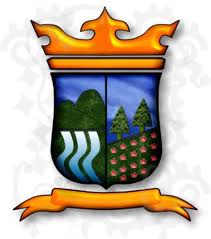
The rise in prices of the most consumed products in the country will remain on a sustained rise due to the global crisis caused by Covid-19 and as a consequence of the war between Russia and Ukraine.
This was announced by the president of the Dominican Agribusiness Board (JAD), Osmar Benítez, who explained yesterday that the rise in the price of chicken is due to two main factors. The first of these is, according to what he said, the lack of fertile eggs, while the second factor is the crisis generated in the country due to the post-pandemic.
Shortage
The agribusiness owner recognized that both situations had given rise to a shortage of the product.
“We have suggested to chicken producers that supply must be increased (…) if we are producing 18 million chickens per month, that number must be raised to 22.5 million,” said the former Minister of Agriculture.
Benítez explained that the lack of fertile eggs in the country has made it difficult to supply the demand for the product to the point of having to import them from other countries.
“The amount of fertile eggs in the local market for you to hatch and produce more chickens is running out. In the United States, for example, there are hardly any fertile eggs to sell,” she stated.
Benítez explained that they are buying from the North American nation as well as from Canada and the Netherlands to meet consumer demand.
Despite this panorama, the representative of the Agribusiness Union was optimistic and assured that with some collective effort and solid budgetary support from the State, it would be possible to solve the shortage of the product that constitutes one of the main foods that make up the basic food basket. Family.
“Incubating an egg takes 21 days and having the chicken ready for consumption takes 39 more days, which means that the chicken problem can be solved in 60 days,” he said.
Recognizing that the pandemic has also affected the rise in chicken prices, Benítez indicated that “in times of crisis like this, national production is the key.”
Prices won’t go down.
For an indeterminate time, the prices of the most consumed products in Dominican households will continue in the same cost line.
Benítez stressed that although the cost of food is “high,” the Dominican Republic is a reliable supplier of supplies.
“Here it is not possible for a famine to occur, for people not to have anything to eat, because what the Dominican people eat, we are self-sufficient and we produce it,” explained the head of the Dominican Agribusiness Board.
ACT
Agreement
The information was externalized in signing the agreement between the JAD and the Association of Manufacturers, Representatives, and Importers of Crop Protection Products (Afipa).
Commitment
Under the agreement, both entities undertook to ensure the protection of the environment and the country’s natural resources and to join efforts to develop a container management program that they named “Clean Field.”
The rise in prices of the most consumed products in the country will remain on a sustained rise due to the global crisis caused by Covid-19 and as a consequence of the war between Russia and Ukraine.
This was announced by the president of the Dominican Agribusiness Board (JAD), Osmar Benítez, who explained yesterday that the rise in the price of chicken is due to two main factors. The first of these is, according to what he said, the lack of fertile eggs, while the second factor is the crisis generated in the country due to the post-pandemic.
Shortage
The agribusiness owner recognized that both situations had given rise to a shortage of the product.
“We have suggested to chicken producers that supply must be increased (…) if we are producing 18 million chickens per month, that number must be raised to 22.5 million,” said the former Minister of Agriculture.
Benítez explained that the lack of fertile eggs in the country has made it difficult to supply the demand for the product to the point of having to import them from other countries.
“The amount of fertile eggs in the local market for you to hatch and produce more chickens is running out. In the United States, for example, there are hardly any fertile eggs to sell,” she stated.
Benítez explained that they are buying from the North American nation as well as from Canada and the Netherlands to meet consumer demand.
Despite this panorama, the representative of the Agribusiness Union was optimistic and assured that with some collective effort and solid budgetary support from the State, it would be possible to solve the shortage of the product that constitutes one of the main foods that make up the basic food basket. Family.
“Incubating an egg takes 21 days and having the chicken ready for consumption takes 39 more days, which means that the chicken problem can be solved in 60 days,” he said.
Recognizing that the pandemic has also affected the rise in chicken prices, Benítez indicated that “in times of crisis like this, national production is the key.”
Prices won’t go down.
For an indeterminate time, the prices of the most consumed products in Dominican households will continue in the same cost line.
Benítez stressed that although the cost of food is “high,” the Dominican Republic is a reliable supplier of supplies.
“Here it is not possible for a famine to occur, for people not to have anything to eat, because what the Dominican people eat, we are self-sufficient and we produce it,” explained the head of the Dominican Agribusiness Board.
ACT
Agreement
The information was externalized in signing the agreement between the JAD and the Association of Manufacturers, Representatives, and Importers of Crop Protection Products (Afipa).
Commitment
Under the agreement, both entities undertook to ensure the protection of the environment and the country’s natural resources and to join efforts to develop a container management program that they named “Clean Field.”






